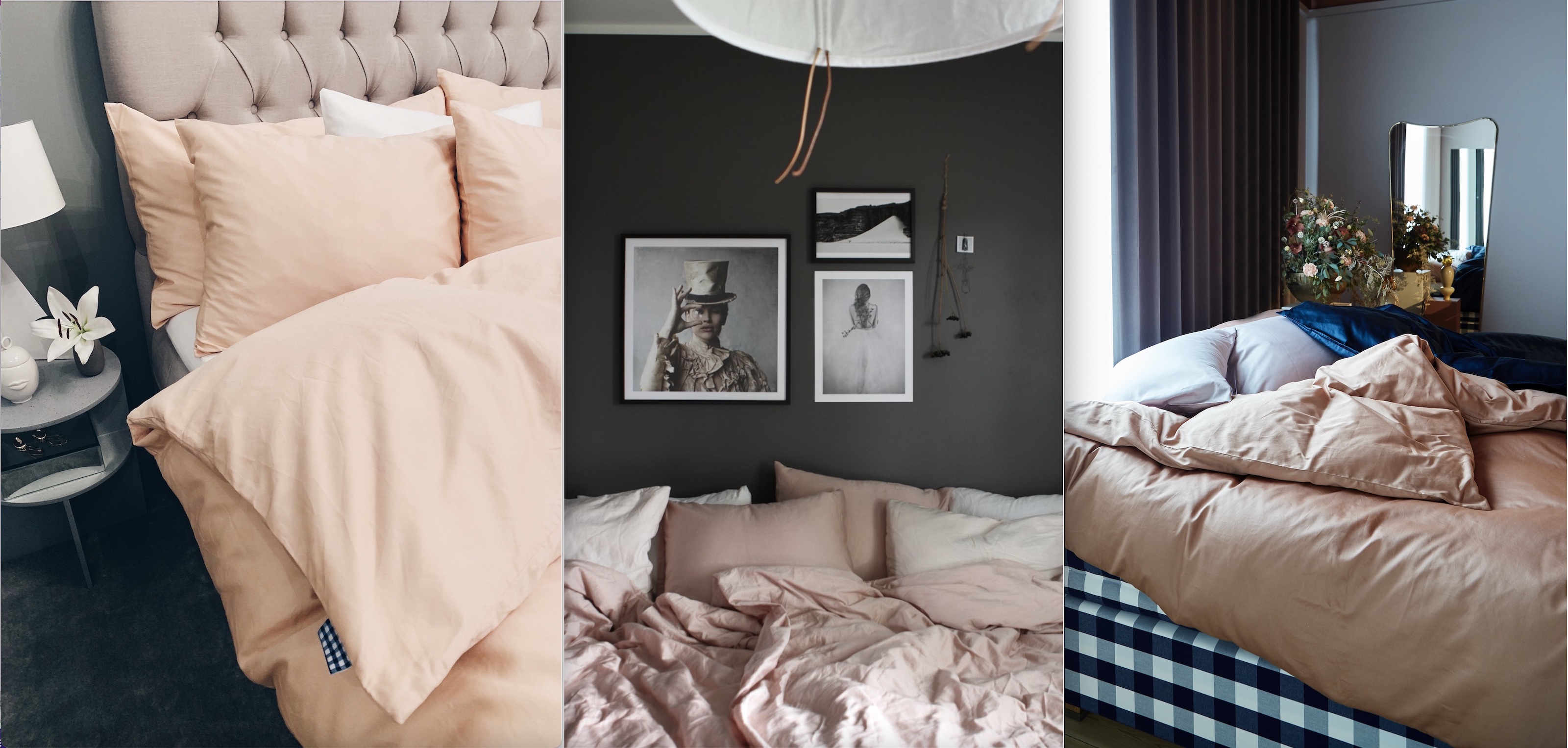My husband and I sleep under separate comforters on our double bed – here's how it's mended our broken sleep
After a trip to Sweden, we've changed our sleep set-up for better rest – and here's why it could work for you, too


I expect to bring a few things back from vacation – souvenirs, perhaps a vase or linen for the house, some local specialty food… But a whole new way of making the bed and arranging my sleep environment? Not so much.
But that's what happened this summer – and it completely transformed the bedroom ideas in our home.
My husband and I – along with our two teenagers – took a trip to Stockholm, the capital of Sweden, and then on to a Swedish summerhouse on the Stockholm archipelago. While the contemporary city apartment and the traditional holiday cottage couldn't have been more different in style and design, they did have one thing in common. Every double bed was made up with two individual single comforters, not the shared double quilt I'm used to sleeping under at home.
And guess what? Even accounting for being in relaxed vacation mode, my husband and I found we started to sleep better each night. These relaxing bedroom ideas meant there were no tussles over who had the most comforter and whose toes were left uncovered. I wasn't left shivering while he sweltered under the same tog value. And we could roll over or fling down the covers without worrying about upsetting each other.
Intrigued, I spoke to Swedish sleep experts to find out whether single comforters are the way forward for a better night's rest, and this is what I found out.

1. Don't be a quilt thief
Before our individual comforter solution, I was frequently accused of being a comforter thief. I blame our cat, who often sneaks onto the bed next to me in the night, hogging the comforter so that my husband is left with – his words – 'a handkerchief' to keep him warm. I know, sharing your bed with your pet is one of those bad bedroom habits that compromises not just your sleep, but your health, too, but in my defence, Hector usually arrives when I'm asleep already.
'A quilt thief seems to take the covers at night from the other,' agrees Dr Michael J Breus, sleep expert for Swedish bed brand, Hästens. 'Many people prefer to have their own single quilt instead of a shared double because they are separate, which allows for each person to move freely.'
And it's not just cats that can steal the comforter. Our kids are too old to want to cuddle up under the covers with us, but according to Dr Breus, those with younger children may choose to have two comforters.
'The Swedish also look at the practical side, and one reason could be that it is common to let the kids sleep in our beds.'
2. Regulate your temperature with individual quilts
Temperature has been another deal breaker for me and my husband when it comes to sharing a quilt. He likes to roll himself up as if he's in a thermal sleeping bag; I like to be able to stick an arm or leg out from beneath the covers if I'm feeling too hot. Cue many a late-night tug of war over the comforter (and not in that way). As Dr Breus says: 'Two may be less romantic but they also help us to sleep better.'
'Sleeping with your own personalized quilt can be extremely helpful for many couples and has probably saved a few marriages as well,' Dr Breus continues. 'Depending upon the person, age and gender of each individual in bed, they can have very different needs (think about a couple in their fifties where one or both are going through menopause).'
I've checked out the best places to buy bedding, so that I could investigate the clever duvets that allow you to personalize the tog rating of each side, like this LaCrosse Dual Down Comforter. But that wouldn't solve the rolling up vs freedom of movement conundrum.
The single comforter option was still winning that battle, although I am tempted to investigate a SleepMe ChiliSleep Sleep System, which cools the bed and even changes the temperature during the night, depending on your sleep cycles.
3. Move without taking the comforter off your partner
Sleep expert Dr Breus agrees that movement is a key factor when it comes to comforter comfort. 'Some people like to adjust their covers or have their feet out at night, while others like them pinned down,' he says. 'A second movement issue is when someone gets up to go to the bathroom, which can make it cool for their partner.'
Before going our separate comforter ways, my husband and I did try creating the ultimate cozy bed to see if that would solve our sleep problems. We researched the best mattress topper, found out what bedding material is best, and decided the best duvet inserts for our needs.
We tried sleeping under a supersized comforter, far bigger than our king-size bed, to see if that would solve our sleep problems. But the extra fabric and weight just made it worse. While my husband couldn't accuse me of being a comforter thief, I couldn't easily cool off and felt trapped under it.
4. Make washing bedding easier
There's no doubt that, even if you have the most practical set-up for your laundry room ideas, know how to wash a down comforter, and then how to dry a comforter, it's not a task you want to do more often than necessary.
'Single duvets are the most popular in Nordic and Baltic homes, and one reason is that maintenance is easier,' says Salla Viitaniemi, bedding expert at department store, Stockmann Helsinki. 'Cleaning, washing and drying single comforters is easier and more efficient that dealing with a double or larger.
Easier laundry, fewer fights over the comforter, and the perfect night time temperature – they're all great reasons for my husband and I to opt for individual duvets. As long as we still get to share a bed – and get a great night's sleep – we're happy.
Sign up to the Homes & Gardens newsletter
Design expertise in your inbox – from inspiring decorating ideas and beautiful celebrity homes to practical gardening advice and shopping round-ups.
Andrea has been immersed in the world of homes, interiors and lifestyle since her first job in journalism, on Ideal Home. She went from women's magazine Options to Frank. From there it was on to the launch of Red magazine, where she stayed for 10 years and became Assistant Editor. She then shifted into freelancing, and spent 14 years writing for everyone from The Telegraph to The Sunday Times, Livingetc, Stylist and Woman & Home. She was then offered the job as Editor on Country Homes & Interiors, and now combines that role with writing for sister title homesandgardens.com.
-
 7 native perennials to plant in April – for glorious flowering displays to attract bees, butterflies, and hummingbirds
7 native perennials to plant in April – for glorious flowering displays to attract bees, butterflies, and hummingbirdsDiscover some of the best perennials to plant in April to make your garden a hotspot for wildlife
By Drew Swainston Published
-
 Martha Stewart's smart laundry room shelving makes exceptional use of every inch of wall space – it will turn your smallest area into an ultra-functional space
Martha Stewart's smart laundry room shelving makes exceptional use of every inch of wall space – it will turn your smallest area into an ultra-functional space'You can greatly expand the usability of your space by just installing some of these great shelving units': You can follow her technique for under $34
By Megan Slack Published